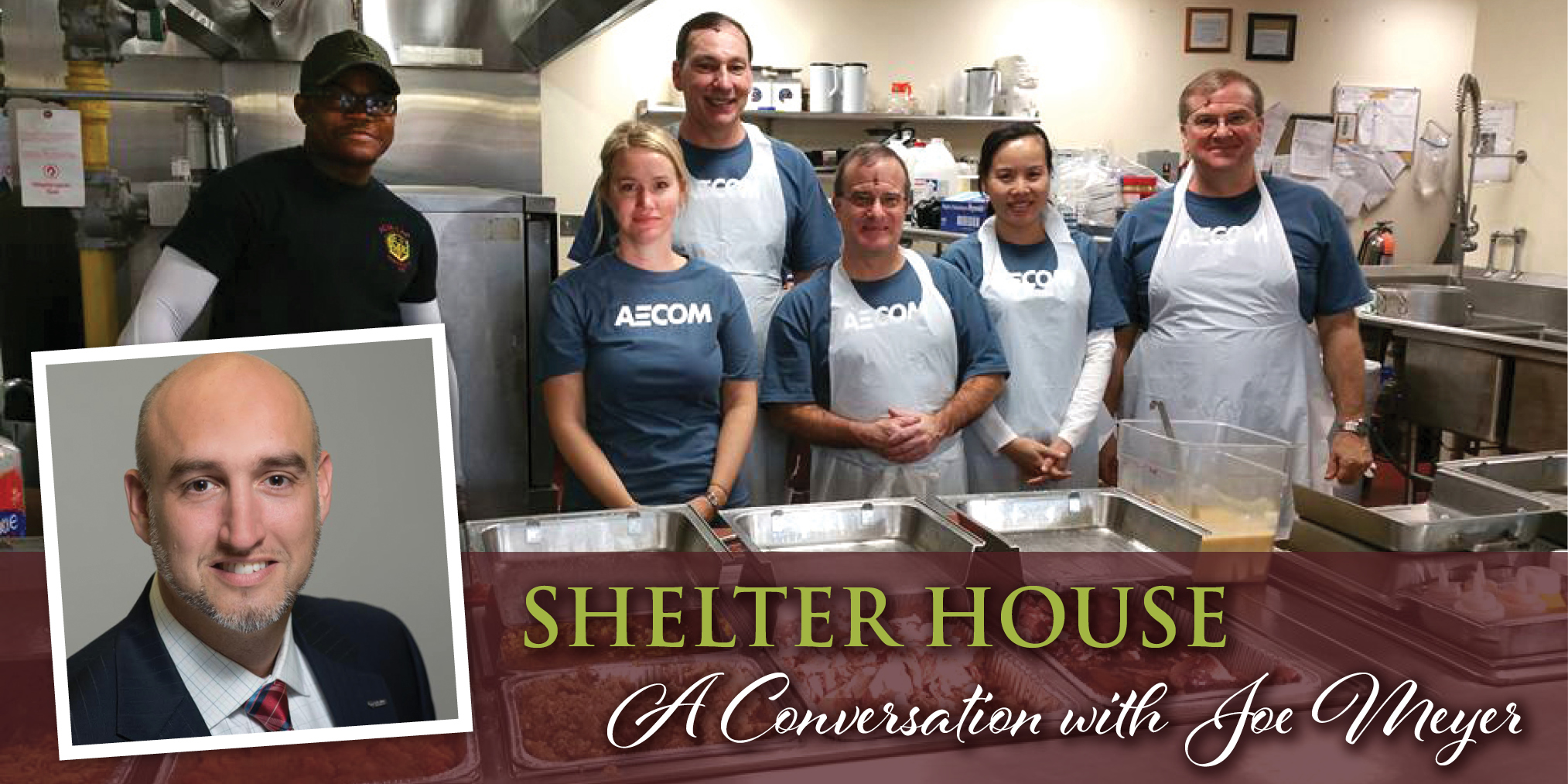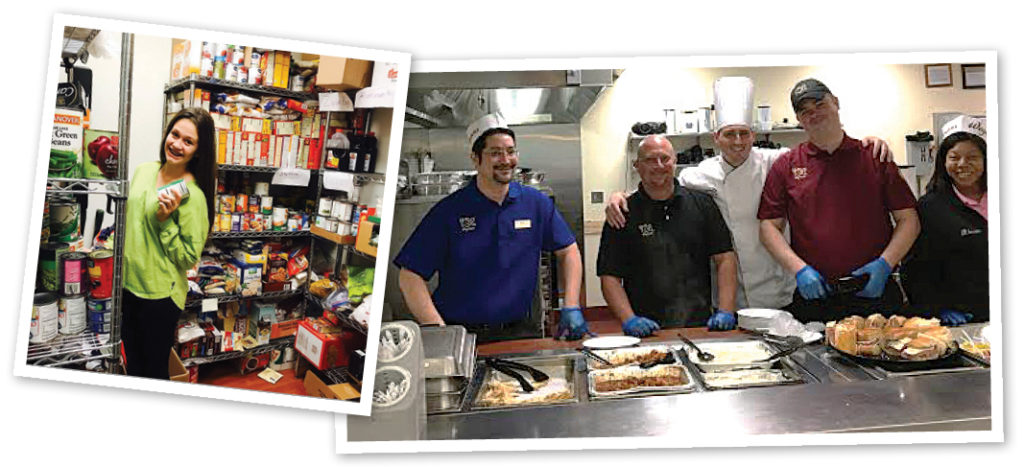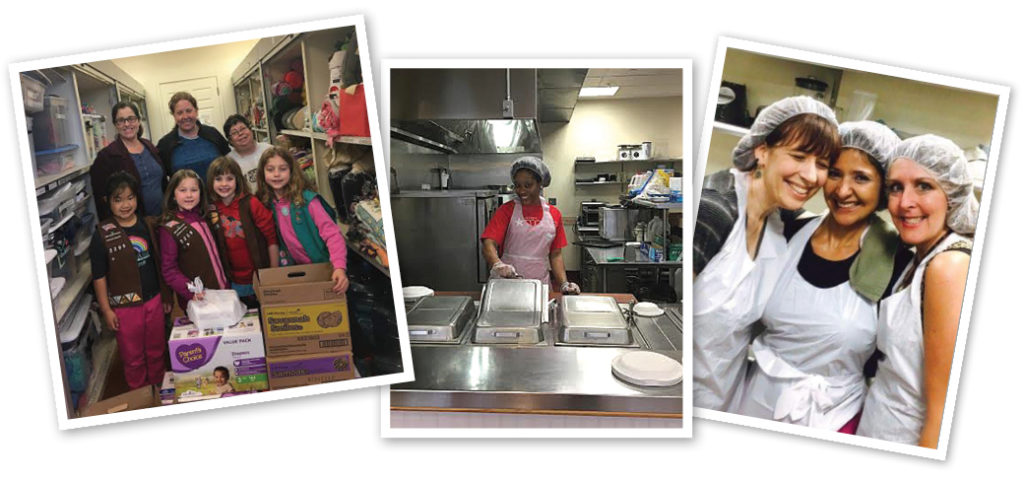There is no question that Joe Meyer is the dynamic leader enabling Shelter House to continue to grow its mission to address the issues of homelessness and domestic violence in our community. As Executive Director and CEO of this wonderful organization, he is focused on fostering a culture of excellence, mentoring and inspiring his team, and engaging each individual from the highest state official down to each volunteer and the clients they serve to reach their potential. It is a calling that he recognizes and embraces.
Joe Meyer feels blessed and privileged. He grew up in Western Pennsylvania in a nuclear family with two loving parents and three brothers. They had all they needed, but no more. His high school was home to the underprivileged, but as both an academic and athletic standout, he was uniquely qualified to help others. With the ability and commitment to be of service along with a strong spiritual foundation, he recognized a compelling purpose for his life. The man at the helm of the community based non-profit Shelter House has a clear understanding of how he’s arrived at this position and a vision for moving forward.
Shelter House is actually the umbrella for three shelters in Fairfax County servicing over 1,370 individuals last year, 70% of which were under 18 years of age. There is the Katherine Hanley Family Shelter in Fairfax with a 62 bed capability, the Patrick Henry Family Shelter in Falls Church with 42 available beds, and Artemis House, the only 24 hour emergency domestic violence center in the county. Artemis House actually has multiple secure locations which when combined offer 56 beds to individuals and families in imminent danger of domestic abuse or harm. You may be amazed to learn that on the night of January 25, 2017 alone, there were 964 homeless people in the Fairfax-Falls Church community.
Mission
“To prevent and end homelessness and domestic violence by engaging the community, building effective relationships and providing crisis intervention, safe housing and supportive services”
The statistics are a wake-up call for action. Almost half of the families experiencing homelessness are the result of domestic violence. Two-thirds of the adults in these families are working, but with the average living wage of a single adult household with two children in Fairfax County equaling $30.86 per hour, more than 4 times the minimum wage, they cannot make ends meet and provide the security their children so desperately need. Is it any wonder that the cycle of poverty and despair tends to be self-perpetuating?
In 2001, after receiving his Bachelor’s Degree in Social Work from Slippery Rock University, Joe left Pennsylvania and became a caseworker locally at the Embrey Rucker Shelter. It was during his tenure there that he “learned why people work the way they do.” He understood that he was working with good people who were “not privileged to have the tools” he has had, but who have persevered and were looking to take those experiences and realize a better life for themselves and their children.
Joining Shelter House in 2005 as the Director at the Patrick Henry Shelter, Joe’s eyes were opened even more as to why survival skills can become a hindrance even under improved circumstances. Though genetics cannot be changed, learned behaviors are at least as important, creating different norms and coping skills for those struggling to break out of the cycle of poverty and abuse. He began to see children of his former clients returning with their own children, unable to support themselves and avoid the mistakes of their parents.
He knows that it is not enough just to get people back on their feet; real, constructive, and practical skills from self-care to market-ready career training are necessary to effect permanent change. Joe feels that with the right people on his team that share Shelter House’s core values of collaboration, accountability, respect, and empowerment (CARE), moving from assistance to enablement is possible. Although some of their clients suffer from permanent disabilities, an improved mental state coupled with proper support can significantly better life for everyone involved in the individual’s or family’s care. This is a systemic approach to treating the whole person and the environment in which they find themselves.
Importantly, a key to success is recognizing “where they are and what they want or need.” The major causes of homelessness are varied and may include illness, a child’s disability, situational depression, abusive relationships, loss of employment or opportunity, or even foreclosure on a home. You cannot dictate a result or a direction, but must make them aware of the choices they have and assist them to get there. It is a constantly evolving process to make sure that no one falls through the net of services available for them, and it does not end when they walk out the door. Follow-up services and support can be ongoing for months or longer in the form of subsidies, counseling, and help with landlords, employers, or other challenges. Even with 60 full-time employees and over 50 part-time staff dedicated to meeting these challenges, there is so much more that can and should be done to put an end to homelessness and domestic violence.
For example, in the case of those in peril from domestic abuse, the first contact may be from the police that have conducted a Lethality Assessment Protocol after arriving on scene of a domestic disturbance. The officers will call Shelter House directly to coordinate entry on an emergency basis, and Shelter House will begin to coordinate legal assistance and next steps while at the same time providing the physical refuge that is needed. Domestic violence is the leading cause of homicide in Fairfax County and has claimed 25 victims over the past few years. Not ONE of those victims reached out for services or help, which means Shelter House is saving lives!








